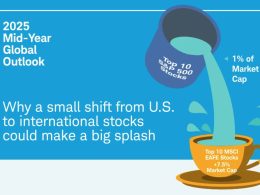by Invesco Global ESG team, Invesco Canada
It’s difficult to fathom how much the world has changed within a matter of months. As governments around the globe launched ever more stringent measures to contain – or at least delay – the spread of the novel coronavirus, life as we knew it transformed before our eyes.
Today, a third of the world’s population is under some form of lockdown, effectively confining people accustomed to roam freely to their own living quarters. In these unprecedented times, some businesses have had to adapt in an extraordinary fashion, and working patterns shifted overnight.
A few months ago, the thought of having around 25% of the world’s total working population working from home would have seemed inconceivable. Remote working was a niche – some may even say it was a perk. And yet, this is the reality for many of us now, as companies had to become more innovative and (in many cases) embrace remote working just to keep their business running. Bloomberg has reported that the crisis has “unleashed a new sort of business creativity”.1 Social media apps are flourishing, with people sharing candid pictures of their new working arrangements with one another that may include children and pets as new-found colleagues.
Meanwhile, some CEOs have decided to forego some or all their salaries for the remainder of the year,2 while various companies have donated key medical equipment or retooled factories to produce more. For those of us who have been following the evolution of environmental, social and governance (ESG) practices across companies, it has become fairly obvious that Covid-19 has brought the “S” in ESG to the fore.
Issues such as climate change and diversity have dominated the news in recent years, and this is captured within the ESG analysis completed by many investors. However, employee welfare, access to healthcare, corporate culture and supply-chain sustainability are all core “social” ESG issues that have become particularly important during this pandemic.
We believe that “business as usual” will not be what we return to after this crisis. Corporate supply chains, for example, may change dramatically. In the past, there was a tendency to seek out low-cost resources, but the cheapest inputs are not always the most sustainable. We believe future working patterns are also likely to change, while corporate responses will become even more vital and could be a differentiator in terms of attracting talent and keeping staff productive.
Corporations and finance will likely continue to play a major role in future, but their relationship with their customers may change. Investors are looking at corporate behaviours in these times as indicators of corporate culture.
There’s also another aspect to this story. The current pandemic may be the dress rehearsal for climate change rather than a disastrous obstruction of it. Expenditures that were once deemed too rash in response to the climate crisis have now been deployed in yet more radical ways to tackle the pandemic. We are already redefining what are considered essential or frontline services and jobs, we are remembering the true value of health and nature.
Countries are making swift decisions that have an immediate impact on the lives of millions of people. In countries around the globe, we are seeing the environmental effects of a steep drop in the use of various types of transportation and industry. According to satellite observations3, two of the hardest hit countries, China and Italy, have shown a dramatic reduction in air pollution levels since lockdown measures began.
This real-time evidence of an immediate reduction in emissions can hopefully fuel arguments for more ambitious targets and regulations in the future. The pandemic provides an opportunity to assess business, government and other reactions as an indicator for preparedness in the face of potential climate-related disasters.
Covid-19 is forcing us to take a good, hard look at the vulnerabilities in our local, state, and national systems. Many are bracing for a significant impact in the financial markets, the healthcare sector, and the housing sector. If Covid-19 plunges us into a severe recession or a depression, as is being predicted, will corporations and municipalities stay true to their ESG promises?
As investors, we believe this is the perfect time to maintain the pressure and push for real change. We believe there is an opportunity here to accelerate the adoption of sustainable business models in all we do. Instead of looking at sustainability as a discount to our investment, or a cost, we have to start looking at the premium some investors may be willing to pay for sustainability that we have seen emerge from the current crisis.
With this in mind, we are proud for Invesco Ltd. to be a signatory of the open letter from the Interfaith Center on Corporate Responsibility (ICCR),4 urging companies to protect the welfare of their employees, customers and suppliers through the current pandemic, as well as the communities in which they operate. All of them are stakeholders who are vital to the long-term viability of these companies.
This post was first published at the official blog of Invesco Canada.













